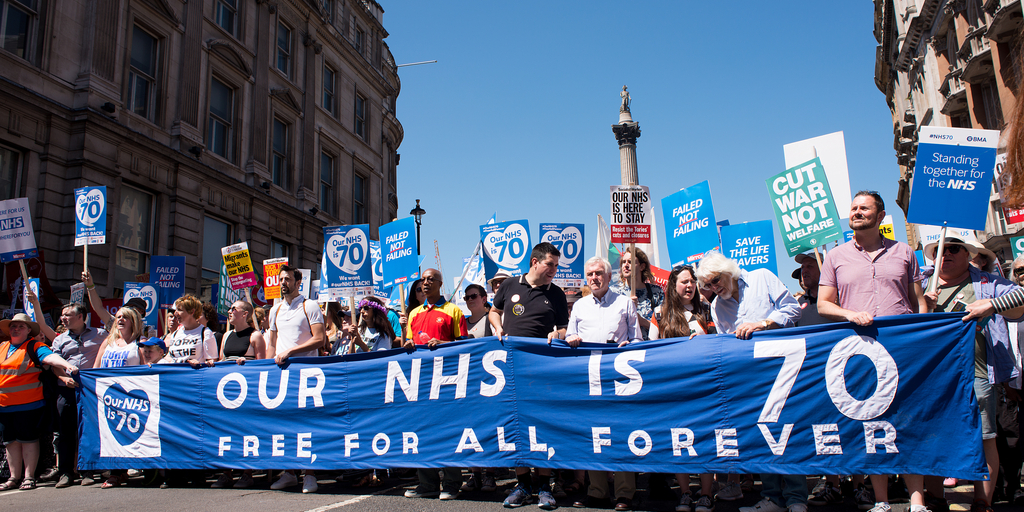"Make America Great Again" v. "Make America Europe"
In the media, the midterms are all about Trump. That is not surprising. For Trump, most everything is about Trump, and he has the bully pulpit. Moreover, some people sincerely regard the President as an existential threat to democracy, and thus this election must focus on checking his power.
For friends of liberty who do not agree with the latter proposition, as I do not, this election is an important one for the enduring issue of politics: the size and reach of government. The parties are as far apart on this question in my lifetime. And that is not sadly because the Republicans have become a more consistently limited government party. Far from it. The worst effect of Trump has been to take off the table plans for reining in our burgeoning entitlements and to add to government regulation through restrictions on trade.
But if Republicans are less consistent in favor of small government, the Democrats have lurched to embrace bigger government than ever before. Many are running on the slogan of Medicare for all, which would inevitably lead to far greater government control of a large part of the American economy. Many also run on providing free college for all, which would be enormously expensive. And if the Republicans have made no progress in reforming entitlements, many Democrats want to increase them by raising Social Security payouts. Candidates obviously don’t emphasize the taxes that would be required to pay for these schemes, but if implemented, the United States would no longer be a relatively low tax nation in the industrialized world. And their program goes beyond increases in spending to new kinds of regulation, mandating maternity and paternity leave and passing laws that would require bureaucrats to decide whether female dominated professions add as much value as male dominated ones.
Thus, if the Republicans are relegated to running on the President’s slogan, “Make America Great Again,” the Democrats’ implicit slogan is “Make America Europe.” Their program would transform the United States to resemble much more closely European welfare states.
I have long thought that political campaigns should engage in more cross-country comparisons, because democratic nation states, like the states themselves, are laboratories of democracy. And the results of European style policies have not been pretty for Europe. They have lower growth rates and far less innovation than the United States. A nation like France—which like the United States is now a multicultural one—is poorer than our poorest state. Almost all the innovation in computation-driven businesses has come in the United States, for instance. It is not hard to see how a low-tax, low-welfare state creates an entrepreneurial and innovative culture, whereas the large welfare state deadens initiative.
And the comparison is even less favorable to Europe than the raw numbers suggest. Europe free-rides on the United States defense umbrella and on United States innovation in sectors like pharmaceuticals. If Europeans had to pay the full cost of their own defense and live with only the innovations their economies produce, their standard of living would be even lower.
And for those who worry about populism’s threat to democracy, European welfare states don’t avoid them. Indeed, populism there may be even more virulent, because European policies are more zero-sum than those in the United States. Citizens become obsessed with protecting their entitlements against the threats from others, often defined as the Other. Economic growth, in contrast, expands the pie over time. Thus, even those who worry about Trump should be concerned about the long-term effect of his opposition’s policies. They would likely give us more Trumps of the left as well as right.


